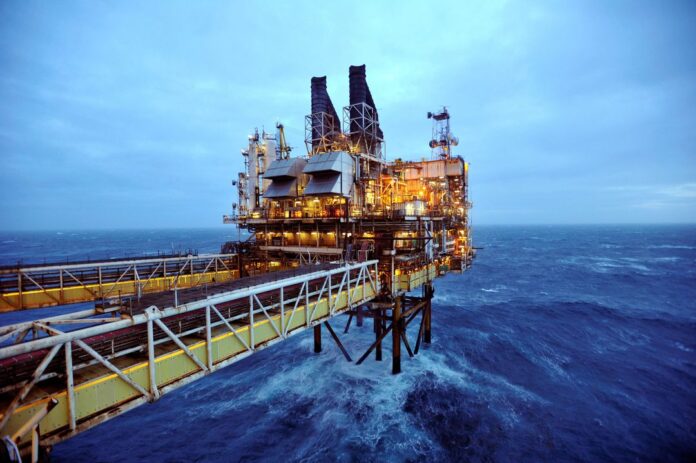LONDON: As OPEC+ prepares to meet on Monday, there is much talk about whether an output increase above 400,000 barrels a day will be forthcoming to help calm crude prices that swelled to a three-year high above $80 per barrel last week.
The key to making the right decision is ascertaining whether current price pressures are temporary or the sign of things to come. Maybe more than ever, there are several known unknowns for policymakers to grapple with.
How cold will the northern hemisphere winter be? How much of a winter spike from COVID can we expect? How quickly will the Gulf of Mexico production lost to Hurricane Ida return? How long will the crunch in natural gas markets persist?
That’s a lot of moving parts, even for the experienced hands of Saudi Arabia, Russia, and the other members of OPEC+ who will be thrashing things out via videoconference on Oct. 4.
Still, the relatively calm state of markets suggests faith in OPEC+ is strong at the moment. CBOE Crude Oil Volatility has risen a little from the two-month low it reached in mid-September but remains well below the heights seen last year as markets grappled with a collapse in demand and massive uncertainty around the rollout of vaccines.
That’s because OPEC+ has been incredibly effective in managing the gradual return of supply as demand ramped up. It has somehow managed not to let oversupply take hold even though it must have been tempting to increase sales to make up for all the barrels lost to COVID-19. At the same time, while prices are higher than Saudi Arabia would like, they have not spiked to levels that would cripple importing nations and destroy demand.
For those who would like to see the end of OPEC and let free markets do their thing, it is easy to see how an unmanaged global oil market might work — just take a look at natural gas, which has set records amid surging prices in recent weeks.
While the current set of circumstances pushing up prices are probably unique — hopefully the global economy won’t have to experience pulling itself out of a pandemic any time again soon — there is another known unknown that is likely to keep the oil market on its toes in the coming decades: The energy transition.
The move away from fossil fuels is inevitably going to be disruptive to global energy markets. Some of the essential planks of the shift to renewables are not yet in place. Maybe most of all, electricity storage to manage the intermittent nature of wind and solar is still too expensive and does not scale.
Green hydrogen, heralded as the key to unlocking many aspects of the energy transition, including power storage, won’t be ready for its leading role for many years to come.
In short, we will need hydrocarbons, including crude oil and natural gas, for decades yet and the market will continue to need skillful stewards, such as Saudi Arabia, to ensure that prices don’t spiral up towards levels that will hurt the global economy, or fall to levels that make renewable energy uncompetitive.
There has been a lot of pressure from activists to end investment in fossil fuels, but failure to do so will most of all hurt those that many activists care about the most: The poor.
As OPEC Secretary-General Mohammed Barkindo told the Wall Street Journal this week, recent periods of underinvestment risk price shocks and energy poverty for developing countries.
It is one of the world’s many paradoxes that for a successful transition to a future of cleaner energy, we must continue to build new oil and gas facilities for some time to come, lest we damage developing economies to a degree they cannot afford to invest in green energy we all want.
Oil closes the week below $80 as OPEC+ said to plan supply increase; LNG at record

